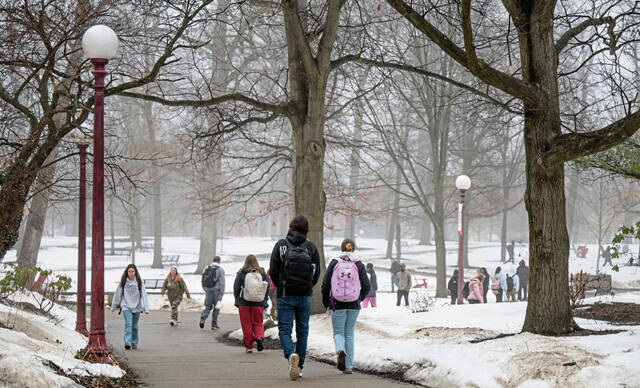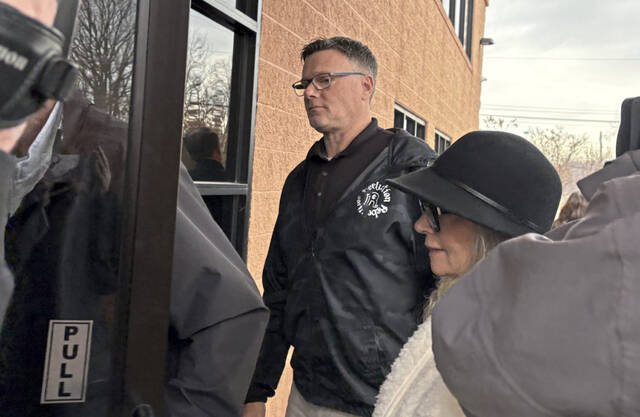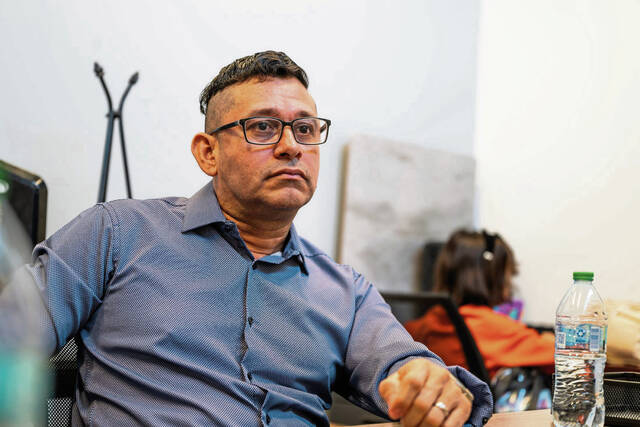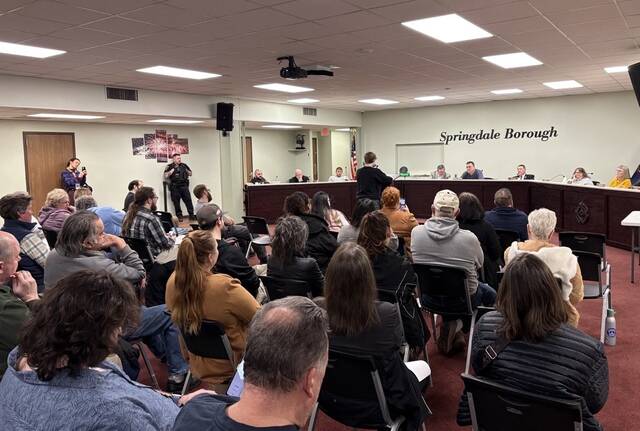Greg Egnor, Burrell School District’s director of Student Services, wants to change the district’s relationship with the 27 families that live within Burrell’s boundary lines but elect to send their children to a cyber charter school.
Previously, the district had no relationship with its growing cyber charter population — which comprises about 42 students now, Egnor said. Burrell has sent out letters to those families about tips for virtual learning and highlighting what Burrell has to offer.
That’s in addition to his plans to establish an interactive website about the district and including those families in district communications.
“It’ll be a concerted effort moving forward, trying to keep them included in the district,” Egnor said.
With many school districts reporting increased costs for cyber school tuition and a statewide debate over setting a flat rate for it, public and charter schools alike are becoming more creative to showcase what they can offer students and families.
“I’m not trying to make you come back,” Egnor said. “My hope is that you do.”
House bill
Under state law, public school districts are required to pay the tuition for students who live in the district and elect to attend a cyber charter school.
Burrell’s budget allocates $702,000 for cyber charter school tuition — which is about 5 mills worth of taxes — for the upcoming school year. It’s a $112,000 increase, or 19%, from the 2024-25 school year.
Meanwhile, the school district’s cost to educate students in Burrell’s eAcademy or the Alle-Kiski Academy of Excellence would be much lower — $183,700 — according to district Business Manager Jennifer Callahan.
Callahan said the district pays about $10,500 more than that per year for every regular-education student who chooses an outside cyber school over the district’s online option. It’s much more every year — $22,500 — per special-education student.
Burrell’s not alone: New Kensington-Arnold’s budget for next school year allots $3.3 million for cyber charter tuition. Allegheny Valley School District spent just under $400,000 last school year for cyber charter tuition.
Statewide, 94% of public school districts have called for cyber charter reform, according to the memo for House Bill 1500, which is working its way through the Legislature.
The bill calls for a flat cyber charter tuition rate of $8,000 for regular-education students. Tuition for special-education students could exceed that rate.
“This past year, to date, the district has spent $389,328 in cyber charter tuition,” said Hamsini Rajgopal, Allegheny Valley’s director of finance and business operations. The district expects to have about 25 students attending cyber school every year.
He said a flat rate of $8,000 per student would be “much-needed relief.”
But what public schools might see as relief is “total devastation” in the eyes of cyber charter leaders.
Tim Eller, chief branding and government relations officer at Commonwealth Charter Academy, said House Bill 1500 would result in fewer field trips, a reevaluation of services, limited technology and more.
“Our school would look nothing like it looks now,” he said.
PACyber CEO Brian Hayden agrees.
“To be honest, some of the language is unclear, and we are not even sure if we can estimate (the cuts),” he said.
Hayden was concerned that he was not approached before the bill was introduced.
“They talked to everybody but us,” he said. “There’s a process that legislation should go through, and this was not it. There was no opportunity for us, families, employers or supporters to officially make comments.”
Sen. Joe Pittman, R-Indiana, said when it comes to cyber charter school reform discussions, officials must consider how to let parents have more say in the best educational path for their children.
Last year’s state budget provided $100 million in cyber charter reimbursements for school districts, Pittman said, along with a formula change that reduced cyber charter school special-education costs by about $190 million annually.
“The additional subsidy and formula savings will directly assist nearly all school districts across Pennsylvania in restraining the overall cost of cyber charter education, allowing more funds to be available for student needs and prevent additional tax increases at the local level,” he said.
“Certain aspects of House Bill 1500 could be beneficial, including improvements in proof of residency and wellness checks. The calculation for new students attending a cyber school also has value.”
Pittman said any additional changes this year would need to build upon those from last year.
“There would also need to be recognition that any new dollars saved equate to an increase in support for school districts, and understanding of the reality that reforms saving school districts money continue to address the Commonwealth Court ruling on education funding,” he said.
Something different?
Commonwealth Charter Academy had about 10,000 students enrolled before the covid-19 pandemic, Eller said. Now, enrollment has more than tripled to 35,500 students.
Eller attributes the increase to students and families looking for something different.
“Something is broken in traditional education, whether the student is being bullied, experiencing safety issues or having flexibility struggles at their local district,” he said. “Families are leaving the district for a reason.”
Eller said multiple cyber charter schools approached brick-and-mortar schools to assist with the transition to online learning during the covid-19 pandemic, but no one took them up on the offer. Hayden said PACyber offered professional development for teachers.
“(The pandemic) just wasn’t something that traditional schools were ready for … and that’s not to blame them,” Hayden said. “All kids may not have computers, most teachers did not have experience with teaching online and students were unfamiliar with learning online.”
Burrell’s Egnor said his initiatives to reach out to cyber charter families isn’t necessarily an effort to get them to return to the district but to offer them a line of communication. For example, cyber charter students can, and have, participated in extracurriculars such as athletics or music if their cyber charter doesn’t provide it.
“People go to cyber charter for a reason — either they want to do school at home in a virtual environment, or they want to be out of Burrell School District,” Egnor said.
Like Burrell’s eAcademy and Alle-Kiski Academy of Excellence, Allegheny Valley established Dynamo Virtual Academy in 2020 for students wanting a virtual experience but wishing to remain in the public school district.
“Dynamo Virtual Academy was a cyber option for our families who were unsure about their children returning to school and wanted an all-virtual program,” Rajgopal said. “So the program costs were high. However, in subsequent years, more students are back in school.”
Since 2020, Allegheny Valley’s cyber charter tuition costs have decreased: They went from $872,800 in 2020-21 to $499,816 in 2021-22, $360,650 in 2022-23 and $347,179 in 2023-24.
Rajgopal said that, on average, 25 students are enrolled in Dynamo Virtual Academy, with another 50 students last year taking single courses throughout the year.








